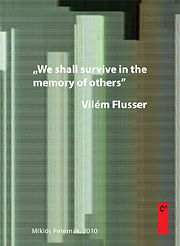I knew Rössler had more urgent matters to discuss, however. Besides being known for the eponymous Rössler Attractor, a formula used in chaos theory mathematics, Rössler famously has issued a public warning on Spiegel TV that the experiments at the Large Hadron Collider at CERN have a chance of creating stable micro black holes (mBHs) which could put the world at risk.
With his self-deprecating humour only barely masking his concern, he told me the chances were 1 in 6 the world would be destroyed when CERN begins operations again in September, Russian Roulette.
His claims have been solidly discredited by many eminent physicists, including Stephen Hawkings, yet, he says many also support him but are unwilling to do so publicly for fear for their careers. Indeed, I found at least one other prominent scientist voicing a similar warning.
With the date of the restart of the LHC approaching, Rössler is forcefully calling for a scientific safety conference to be held whereby the public can be informed of the true risk and the actions being taken to prevent any disaster. In the clip below, he relates a conversation he had with CERN physicist Rolf Landua where they discussed an experiment which could test whether Rössler's calculations were correct or not. Such an experiment would significantly postpone the riskier experiments for which the LHC was built. Claiming all he wants is to be proven wrong, Rössler seems to be employing a stalling tactic similar to that described by Leo Szilard in his "Mark Gable Foundation".
Szilard, with Einstein, one of the essential geniuses of the atomic bomb, had to watch impotently in horror as his brainchild was exploded over a civilian population, despite his and Einstein's protests to then President Truman. Szilard became catalyzed into an activist and writer, who worked to slow down the pace of scientific progress.
Rössler invokes the repented sins of Szilard, Oppenheimer and Einstein, and claims that the pursuit of the LHC experiments as planned, without additional safety considerations, would be a sin against science. Rössler might feel himself responsible for innovating some of the mathematics which have found their application in the LHC. Most poignantly, Rössler is calling here for what appears today an anachronistic sense of scientific morality, one that places the value of truth above all.
One look at the genealogy of today's technologies will reveal that business interests (or their national proxies, states and their militaries) have accompanied every technological discovery. There is no knowledge untainted by lucre, just as there is no literature and no art devoid of the existential realities of the material survival of the artist. It is time we acknowledge these concurrent forces in the works we admire and integrate these in our appreciation.
Can scientists be held accountable for the adverse realisation of their theories? We can see with nuclear physics, the research has provided the full range of effects from the beneficial to cataclysmic. Today we live in a world where not a day goes by without some global crisis over "Nuclear Proliferation". Science is the new god, providing for our wildest desires and deepest fears. But, as Bruno Latour pointed out in his book Laboratory Life
In the next blog, I would like to explore the notions of absolute and relative good and bad in the frame of Derrida's discussion of Marx in "Specters of Marx
UPDATE: 31.07.09 Looks like CERN is experiencing more leakage problems with the cooling units which may push the start of experiments up to November or even later!
UPDATE 2: 4.08.09 New York Times reports today that, due to system electrical faults, CERN may not reach full operationality for years if ever!
additional resources:
CERN's LHC FAQ with lots of good basic information about the project
A Rational and Moral and Spiritual Dilemma
by Otto E. Rossler
P.M. - Wie gefährlich ist das CERN-Experiment? (how dangerous is the CERN Experiment?)
Interview in German with Rössler with countervailing responses from Rolf Landua
In depth interview with Dr. Rössler and a long forum conversation in which he is forced to rebut many arguments
Some good references in this report on the European Court Case to impose stricter safety tests before CERN begins full operation













No comments:
Post a Comment